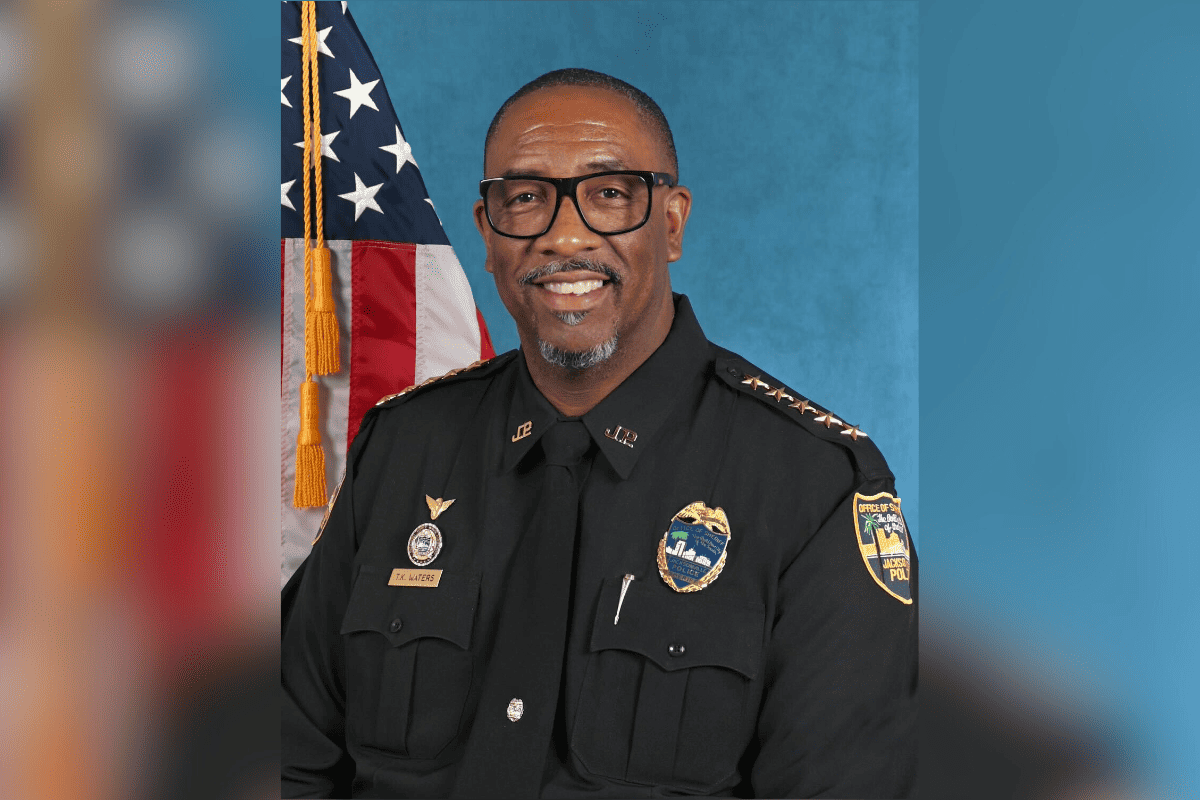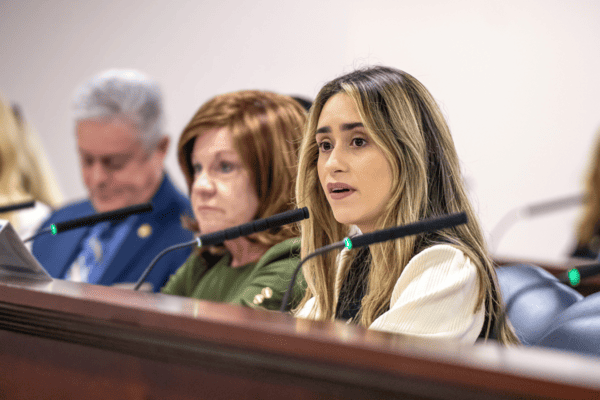Sheriff T.K. Waters says new Florida bills will make agency ‘healthier’

JACKSONVILLE, Fla. – Jacksonville Sheriff T.K. Waters said that recent sheriff-related bills passed in the Florida Legislature during the 2024 Legislative Session make his agency “healthier.”
“It’s just been a really good session,” Waters said. “I’m extremely happy with the support that we have from our legislators up in Tallahassee.”
Granting sheriffs more independence, budget power
Waters told Florida’s Voice he is “extremely excited” about a bill headed to the governor that would grant more independent rights to sheriffs, including sheriffs in consolidated governments.
“We have a really good relationship up in Tallahassee with some great folks up there and I’m super pleased that they heard me and were willing to vote and get this thing passed,” Waters said.
The bill, which passed through both chambers and will head to the governor’s desk for final approval, clarifies that sheriffs, including those in consolidated government, may move approved funds between different sub-categories of their budget without further approval.
Consolidated governments are ones in which the county and municipality consolidate their local governments into one entity. Duval County is currently the only community in Florida which has such a system.
Waters said in 2022, this legislation was passed for Florida sheriffs, but the Jacksonville Sheriff’s Office was not included in it, because of an “oversight.”
Sen. Clay Yarborough, R-Jacksonville, sponsored the legislation, SB 1704, and Rep. Wyman Duggan, R-Jacksonville, filed the House companion, HB 1447. Waters said they sponsored the bill for him.
“It helps us to be able to do things much more efficiently, a lot quicker than having to go and ask a city council or our mayor, if we can move our money around and what we can purchase when we need to purchase it,” Waters said.
Abolishing civilian review boards for law enforcement officers
Another bill the sheriff said is “huge” is one that abolishes civilian review boards for the actions of individual law enforcement officers.
“I don’t like civilian review boards,” Waters said. “I think they are largely political. They are formed based off of feelings and not facts, they come to conclusions that because they don’t like the way something looks, they want to quite honestly, persecute police officers and sheriff’s deputies across the state.”
Sen. Blaise Ingoglia, R-Spring Hill, sponsored the bill, SB 576 and Rep. Wyman Duggan, R-Jacksonville, filed the House version, HB 601.
The legislation grants sheriffs and police departments the capability to appoint civilian boards to review office and departmental policies and procedures, but not individual complaints or actions of officers.
Waters explained that there is already a “multi-pronged approach” when it comes to investigating and determining if an officer should or should not be prosecuted.
He said state attorneys across the state are involved and the agency is “not alone” in the decision making process.
“We are very objective when we look at these things, and we focus heavily on whether what we did was legal or illegal,” Waters said. “We don’t need someone who doesn’t have any experience.”
Waters said that law enforcement is the “only profession” he knows of where “everyone outside the profession thinks they know how to do it better.”
Anti-homeless camping bill
The sheriff pointed to another piece of legislation that is headed to the governor, which prohibits a county or municipality from authorizing or permitting sleeping or camping on public property, public buildings or public rights-of-way without a lawfully issued temporary permit.
Sen. Jonathan Martin, R-Fort Myers, carried SB 1530 in the Senate, while Rep. Sam Garrison, R-Fleming Island, carried HB 1365 in the House.
He said Jacksonville has had a homeless and public camping issue for “quite a bit.”
“Until now, there was very little that we could do,” Waters said. “Now that we have something to help us deal with that situation, after the governor signs it of course, we’ll be able to enforce that and make sure we get people into a place where they’re not on sidewalks, they’re not in front of businesses, they’re not littering up, or messing up yards or parking lots for our businesses’ function, because that is a real issue.”
Waters said he does “empathize” with the homeless population, but Jacksonville is a business community and owners are “very concerned” about the issue.
“We need our businesses to be able to operate and operate freely without that issue,” Waters said.
Protecting first responders from harassment, obstruction
Waters said another bill headed to the governor that is “a really big deal” to the agency is one that aims to protect first responders from being harassed and from being obstructed in their work as officers of the law.
The bill makes it a first degree misdemeanor for any bystander, after receiving a warning, to not provide at least 14 feet of space between themselves and the first responders.
Waters said he hopes with this legislation put in place that “people will understand.” He said his agency will begin with an education campaign and “after a certain amount of time,” they will enforce the rules.
Sen. Bryan Avila, R-Hialeah Gardens, sponsored the bill, SB 184, requiring bystanders provide first responders an ample amount of space when they are addressing an emergency.
Rep. Alex Rizo, R-Hialeah, sponsored the House version of the bill.
“I think every sheriff and police chief across the state is going to feel the positive effects of what’s going on here,” Waters said. “And Florida is a great place to live, and this just helps it be even greater.”
The sheriff also pointed to a grant awarded to the sheriff’s office through the state’s appropriations budget of $577,514 for a mobile investigative command vehicle.
Waters said that grant award is “incredible” for his agency.
The sheriff’s office said the project of the new mobile investigative command vehicle will “significantly increase” the agency’s capabilities when responding to critical incidents and conducting investigations by providing a “versatile on-scene command center with advanced investigative resources and equipment.”
The appropriations bill awaits the governor’s approval.



